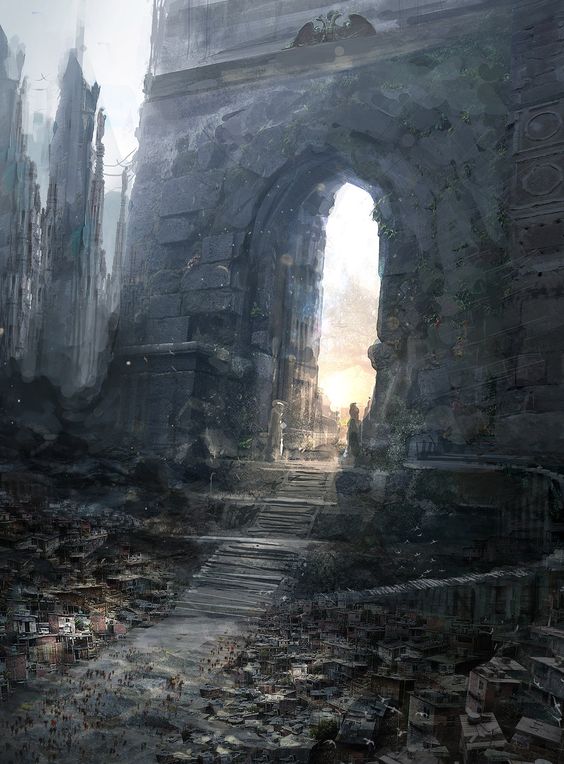
We had a very solid start to our new DW series, The Sorrow, last night. The party dynamics are developing nicely, and the moves took our story in directions I didn’t anticipate. I also got to meet new players, which is always great.
Thanks to everyone who came out: Aniket Schneider, River Williamson, Alex Chalk, Pamela Alexander and John Alexander.

Not only was it super-fun, but playing with a seasoned PbtA GM gave me great insights on how to run my own games. Thank you, Jason Cordova .
I’m bummed that I won’t be able to attend the next session, but Sigil is a fickle character… so it works in-fiction.
Not only was it super-fun, but playing with a seasoned PbtA GM gave me great insights on how to run my own games. Thank you, Jason Cordova .
I’m bummed that I won’t be able to attend the next session, but Sigil is a fickle character… so it works in-fiction.
How did the flags work compared to bonds?
How did the flags work compared to bonds?
I thought they were pretty good, but the players might have better insight there. After the session, everyone said they were actively thinking about the Flags, which is already a win over Bonds in my book.
I thought they were pretty good, but the players might have better insight there. After the session, everyone said they were actively thinking about the Flags, which is already a win over Bonds in my book.
I felt like flags really kickstarted party chemistry in a way that bonds often don’t. Many of the interactions between characters in this session were noticeably centered around trying to trigger someone’s flag.
In particular, often I will come into a session with a particular idea of what my character is like, but it’s hard to get other characters to play into that. Flags accomplished that goal neatly, by giving other players a clear guideline as to how to play into my vision for my character – and a reward for doing so.
By way of example, I’m playing a halfling thief in this series. Thieves should sneak into places and steal stuff, so I wrote my flags to encourage people to let me do that. In the absence of flags, though, it’s often hard to find narrative space for sneakery when everyone else is angling for spotlight time for their characters also. I found that flags gave other players an opportunity (excuse?) to let me go off on my own and do some thievery. In turn, I had the chance to play into the Wizard’s vision of his character as an astrologer.
I’m sure I’ll come up with criticisms for flags eventually, but in this session they worked really well.
I felt like flags really kickstarted party chemistry in a way that bonds often don’t. Many of the interactions between characters in this session were noticeably centered around trying to trigger someone’s flag.
In particular, often I will come into a session with a particular idea of what my character is like, but it’s hard to get other characters to play into that. Flags accomplished that goal neatly, by giving other players a clear guideline as to how to play into my vision for my character – and a reward for doing so.
By way of example, I’m playing a halfling thief in this series. Thieves should sneak into places and steal stuff, so I wrote my flags to encourage people to let me do that. In the absence of flags, though, it’s often hard to find narrative space for sneakery when everyone else is angling for spotlight time for their characters also. I found that flags gave other players an opportunity (excuse?) to let me go off on my own and do some thievery. In turn, I had the chance to play into the Wizard’s vision of his character as an astrologer.
I’m sure I’ll come up with criticisms for flags eventually, but in this session they worked really well.
Flags are a lot like Aspects in Fate in that you want them to be general enough that you’re likely to use them, but specific enough that they have flavor. Unlike Fate’s Aspects, you’ve already generated (most of) the character, so they’re easier to write than Aspects.
I remember looking at the bonds for the Immolator and thinking, “how the hell am I going to incorporate these into play?” and “who would actually accept bonds like these?”
Flags are a lot like Aspects in Fate in that you want them to be general enough that you’re likely to use them, but specific enough that they have flavor. Unlike Fate’s Aspects, you’ve already generated (most of) the character, so they’re easier to write than Aspects.
I remember looking at the bonds for the Immolator and thinking, “how the hell am I going to incorporate these into play?” and “who would actually accept bonds like these?”
Is there somewhere to read/listen to more about these “flags”? I’m pretty curious 🙂
Is there somewhere to read/listen to more about these “flags”? I’m pretty curious 🙂
Here you go, Phillip Wessels. The only thing Flags doesn’t account for is what you roll with Aid/Interfere. We decided you could simply roll the stat that makes sense when you do that move.
http://walkingmind.evilhat.com/2015/09/07/from-bonds-to-flags/
Here you go, Phillip Wessels. The only thing Flags doesn’t account for is what you roll with Aid/Interfere. We decided you could simply roll the stat that makes sense when you do that move.
http://walkingmind.evilhat.com/2015/09/07/from-bonds-to-flags/